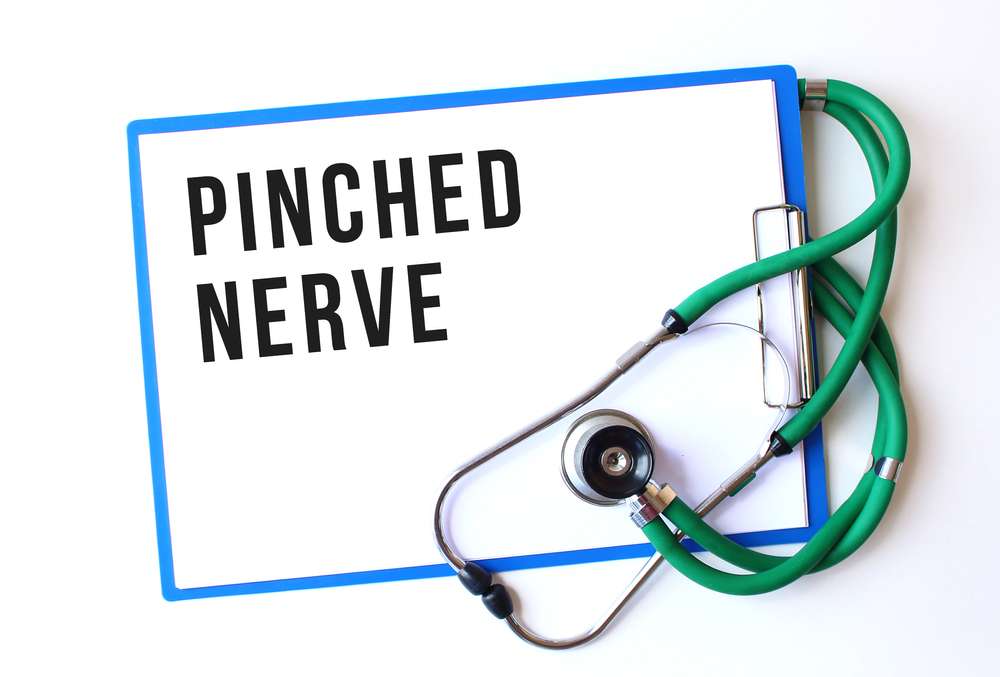 Have you ever sat in one position for too long, then noticed that your foot felt numb and like it was full of pins and needles? If so, you’ve experienced a short-lived version of a pinched nerve. A more serious pinched nerve may not resolve with simple movement, but it can often be accompanied by other symptoms like sharp and burning pains. When this happens, you may need to seek the care of a Jonesboro chiropractor to address the root cause of your symptoms and remove any compression from the nerve. Without this attention, pinched nerves can have long-term consequences.
Have you ever sat in one position for too long, then noticed that your foot felt numb and like it was full of pins and needles? If so, you’ve experienced a short-lived version of a pinched nerve. A more serious pinched nerve may not resolve with simple movement, but it can often be accompanied by other symptoms like sharp and burning pains. When this happens, you may need to seek the care of a Jonesboro chiropractor to address the root cause of your symptoms and remove any compression from the nerve. Without this attention, pinched nerves can have long-term consequences.
Why Pinched Nerves Matter
Many people know that we have nerves, but it’s not always clear what they are. Nerves are critical pathways that carry information from the brain to the rest of the body along internal pathways. Nerves can be either motor or sensory in nature. A motor nerve carries information from the brain to the organs, muscles, and heart; a sensory nerve sends information from the body back to the brain to be processed as pain, taste, temperature, or other sensations.
Any disruption to one of these nerves interrupts this communication and renders the body and mind unable to properly communicate. A nearby bone, muscle, joint, or soft tissue that becomes inflamed or displaced can place pressure on these nerves, “pinching” them so that they are no longer functioning.
Certain areas of the body are more vulnerable to a pinched nerve, especially the neck and lower back. Long-term degenerative issues can sometimes lead to the condition, but sudden traumas like a car accident are also responsible for some pinched nerves. Poor posture, herniated discs, osteoarthritis, sports injuries, and spinal stenosis are all possible causes of a pinched nerve. With treatment from a Jonesboro chiropractor, most pinched nerves resolve in time. However, if not addressed, long-term damage is possible.
Treating a Pinched Nerve
Do pinched nerves go away on their own? Most pinched nerves can be treated using non-invasive treatments that don’t require surgery. Treatment often begins with home remedies that help you to manage pain and the feeling of numbness that accompanies the condition. If you suspect a pinched nerve, you can try the following on your own:
- Alternating ice packs and heating pads applied to the affected area
- Rest and avoiding strenuous activity
- Over-the-counter pain medication, especially NSAIDs like Aleve or Advil
- Lightly stretching the impacted area to improve blood flow
- Adjusting posture and sleep position
Even if your symptoms are relieved with home remedies, it is still important to visit a Jonesboro chiropractor to identify the root cause. Otherwise, the pinched nerve is likely to resurface over time and may become worse. When you visit, the chiropractor will likely perform some imaging to get a better view of the nerves, as well as some assessment tests to determine your nerve function. These can help determine where your treatment should focus and how severe the problem might be.
Your chiropractor may use a range of techniques, including:
- Spinal adjustments to realign the spine and remove any issues blocking a nerve
- Physical therapy to improve mobility and strengthen the muscles surrounding your nerves
- Splints or cervical collars that limit motion during healing
- Corticosteroids with strong anti-inflammatory properties to relieve prolonged pain
If these treatments do not work, you may be recommended for surgery to remove the obstruction or injury.
Long-Term Damage from a Pinched Nerve
If a nerve is being compressed, the symptoms may initially be intermittent and tolerable. However, when the issue that caused the symptoms is not addressed, they may become chronic. Moreover, permanent nerve damage is a possibility when a pinched nerve is untreated. Cases caused by excessive fluid or swelling in the area are particularly vulnerable to this. Prolonged pinched nerves can also lead to disc degeneration or peripheral neuropathy, and in severe cases even partial paralysis.
Even if you feel like your symptoms have resolved, you should visit AICA Jonesboro for an evaluation if you suspect a pinched nerve to confirm there is no serious obstruction occurring. A Jonesboro chiropractor will be able to determine the severity of your case and provide guidance on home remedies and offer professional treatments where possible. AICA Jonesboro also offers access to a range of specialists, including neurologists and orthopedists, who will work with your chiropractor. If surgery or more intense treatment is indicated, these experts will form a team to create a customized treatment plan for you, including adjustments, injections, and surgery where necessary. Call AICA Jonesboro to get started today!
